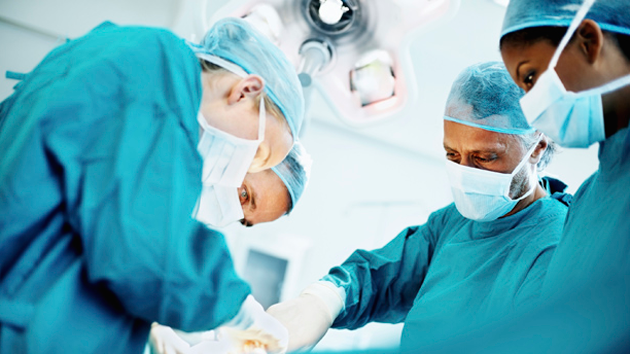
A new study finds that up to half of infections after common surgeries are caused by antibiotic-resistant bacteria. <a href="http://www.istockphoto.com/portfolio/kupicoo?facets={%22pageNumber%22:1,%22perPage%22:100,%22abstractType%22:[%22photos%22,%22illustrations%22,%22video%22,%22audio%22],%22order%22:%22bestMatch%22,%22filterContent%22:%22false%22,%22portfolioID%22:[5074146],%22additionalAudio%22:%22true%22,%22f%22:true}">kupicoo</a>/iStock
An eye-opening study published today in The Lancet Infectious Diseases medical journal shows just how many people acquire antibiotic-resistant infections after common procedures: Up to half of infections after surgery and a quarter of infections after chemotherapy are caused by resistant bacteria—meaning that they are significantly more difficult, if not impossible, to treat.
“A lot of common surgical procedures and cancer chemotherapy will be virtually impossible if antibiotic resistance is not tackled urgently,” said Dr. Ramanan Laxminarayan, a study co-author and director of the Center for Disease Dynamics, Economics, and Policy. “All of us at some point have to get a surgery or a root canal or a transplant, or perhaps go through chemo at some point in our lives. But how well these turn out depends on how well the antibiotics used to keep infections away during surgery work.”
Infections during and after surgeries and chemotherapy are common, so it is standard practice to give these patients antibiotics. But as the drugs are overused or misused, antibiotic resistance rates have risen. The Lancet authors conducted a meta-analysis of literature reviews on the efficacy of antibiotics after 10 of the most common surgeries in the United States. They found antibiotic-resistant bacteria to be causing 39 percent of infections after cesarean sections, 51 percent of infections after pacemaker implants, and 27 percent of infections after blood cancer chemotherapy.
If the efficacy of antibiotics drops 30 percent—a rate that the authors see as realistic given the current overuse of antibiotics—then infections from surgeries and chemotherapies could result in 120,000 more infections and 6,300 more infection-related deaths each year in the United States.
Dr. Laxminarayan suggests a multipronged solution to the problem: Doctors need to be trained on when (and when not) to prescribe antibiotics and how to minimize infections after common surgeries. Americans need to stay up to date on vaccines in order to reduce the need for antibiotics in the first place. If you’re getting surgery, he says, choose hospitals and surgeons with low infection rates—hospitals are required to publicly report these numbers in many states. (More from the Centers for Disease Control and Prevention, here).

















